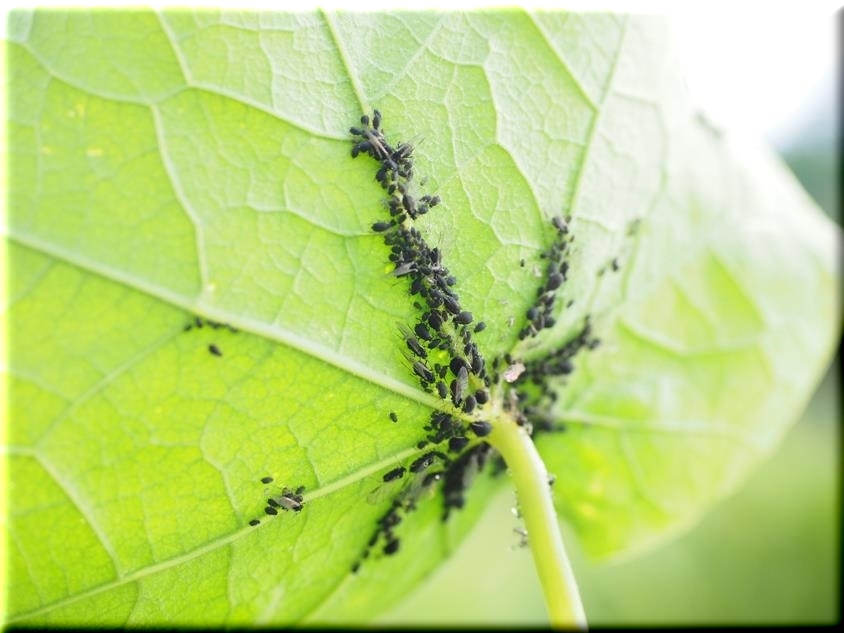Garden
How to Keep Pests Away From Your Garden: A Guide to Prevention and Control
It’s frustrating to see your hard work in the garden undone by pesky insects, hungry animals, or damaging diseases. Luckily, there are effective ways to keep pests away from your plants and protect your precious crops. This guide will walk you through understanding garden pests, exploring natural and organic pest control methods, and implementing preventative measures that ensure a healthy and thriving garden.
Understanding Garden Pests: The First Step to Prevention
Before you can fight pests, you need to know what you’re up against. Garden pests come in all shapes and sizes, from tiny insects to larger animals, and they can cause various types of damage.
What are garden pests?
Garden pests are any organisms that cause harm to your plants. This includes insects, animals, and diseases.
Common types of garden pests:
- Insects: Aphids, beetles, caterpillars, and other insects can quickly damage plants by feeding on leaves, stems, and fruits.
- Animals: Rabbits, deer, squirrels, and other animals can be a nuisance, especially in smaller gardens. They may nibble on plants or dig up roots.
- Diseases: Fungal, bacterial, and viral diseases can affect plants in different ways.
Identifying pest damage:
One of the first signs of a pest problem is damage to your plants. This damage can range from small holes in leaves to wilting or discoloration.
- Leaf damage: Holes, browning, or discoloration on leaves often indicate insect feeding.
- Fruit damage: Marks, spots, or holes on fruits often indicate insect damage or animal nibbling.
- Root damage: Wilting, stunted growth, or dead plants can indicate root damage from pests or disease.
Natural Pest Control: Safe and Effective Methods
The best approach to pest control is often a natural one. These methods are safer for the environment, your health, and beneficial insects that help control pest populations.
Beneficial Insects:
Nature provides a natural defense against pests. Ladybugs, lacewings, and praying mantises are just a few examples of beneficial insects that feed on harmful pests like aphids, caterpillars, and other insects.
- Ladybugs (Subject: Ladybugs, Predicate: Feed on, Object: Aphids)
- Lacewings (Subject: Lacewings, Predicate: Feed on, Object: Caterpillars)
- Praying Mantises (Subject: Praying Mantises, Predicate: Feed on, Object: Other Insects)
Companion Planting: Using Natural Repellents
Certain plants naturally repel pests. Planting these plants near your vegetables or flowers can help deter insects and other creatures.
- Mint (Subject: Mint, Predicate: Repels, Object: Insects)
- Basil (Subject: Basil, Predicate: Repels, Object: Mosquitoes)
- Garlic (Subject: Garlic, Predicate: Repels, Object: Aphids)
Creating a Pest-Resistant Garden Environment:
A healthy garden ecosystem can help naturally control pests.
- Using physical barriers: Nets, row covers, and fences can help keep animals out of your garden.
- Maintaining a healthy garden ecosystem: Provide diverse habitats for beneficial insects and other natural predators.
- Keeping the garden clean and tidy: Regularly remove plant debris and weeds, which can provide shelter for pests.
Preventing Pest Problems: Proactive Approaches
Preventing pests in the first place is the most effective way to control them.
Crop Rotation:
Rotating your crops from year to year can help prevent pests from becoming established in your garden.
- Entity: Garden | Attribute: Type | Value: Vegetable, Fruit, Flower
- Entity: Crop Rotation | Attribute: Strategy | Value: Disrupting Pest Cycles
Choosing pest-resistant plant varieties:
Many varieties of plants are naturally resistant to certain pests.
- Entity: Plant | Attribute: Type | Value: Pest-resistant
Attracting birds and other natural predators:
Birds, bats, frogs, and other animals can help control pest populations.
- Entity: Garden | Attribute: Location | Value: Backyard, Greenhouse, Balcony
- Entity: Bird | Attribute: Type | Value: Bluebird, Chickadee, Robin
Dealing with Pest Infestations: When Prevention Fails
Even with the best preventative measures, pest infestations can still occur.
Identifying the pest and its life cycle:
Knowing the type of pest you’re dealing with is the first step to controlling it.
- Entity: Pest | Attribute: Type | Value: Insect, Animal, Disease
- Entity: Pest | Attribute: Life Cycle | Value: Egg, Larva, Adult
Using natural pest control sprays:
Neem oil, garlic spray, and insecticidal soap are effective natural sprays that can help control pests without harming beneficial insects.
- Entity: Control Method | Attribute: Type | Value: Natural, Chemical, Biological
- Entity: Natural Control | Attribute: Example | Value: Diatomaceous Earth, Neem Oil, Garlic Spray
Hand-picking insects and removing infested plants:
For small infestations, hand-picking insects and removing infested plants can be effective.
- Entity: Control Method | Attribute: Effectiveness | Value: High, Medium, Low
- Entity: Control Method | Attribute: Safety | Value: Safe, Toxic
Using traps and other non-chemical methods:
Sticky traps, pheromone traps, and other non-chemical methods can help control certain pest populations.
Organic Pest Control: Safeguarding Your Garden and Yourself
Organic pest control methods are a safe and sustainable alternative to conventional pesticides.
- Entity: Control Method | Attribute: Type | Value: Organic
- Entity: Organic Control | Attribute: Benefit | Value: Environmentally Friendly, Safe for Health
Understanding the difference between organic and conventional pest control:
Organic pest control methods use natural products and strategies, while conventional methods rely on synthetic chemicals.
- Entity: Control Method | Attribute: Type | Value: Conventional
- Entity: Conventional Control | Attribute: Benefit | Value: Effective, Fast-acting
The benefits of using organic methods:
Organic methods are safer for the environment, your health, and beneficial insects. They also help maintain a healthy garden ecosystem.
Finding organic pest control products and solutions:
There are many organic pest control products available, from neem oil and insecticidal soap to diatomaceous earth and beneficial insects.
- Entity: Natural Control | Attribute: Example | Value: Diatomaceous Earth, Neem Oil, Garlic Spray
FAQ
What are the most common garden pests in my area?
The most common garden pests vary by region and climate. You can find local information on common pests through your local extension office or online resources.
How can I tell if my plants are being attacked by pests?
Look for signs of damage such as holes in leaves, wilting, discoloration, or unusual growth patterns.
Is there a way to prevent pests from entering my garden?
Yes, there are many preventative measures you can take, such as using physical barriers, maintaining a healthy garden ecosystem, and choosing pest-resistant plant varieties.
How can I get rid of pests naturally?
You can use a variety of natural methods to control pests, including beneficial insects, companion planting, and creating a pest-resistant garden environment.
What are some good organic pest control products?
Neem oil, garlic spray, insecticidal soap, diatomaceous earth, and beneficial insects are effective organic pest control products.
Conclusion
Preventing and controlling pests is an ongoing process, but with a little knowledge and effort, you can keep your garden healthy and thriving.
Remember that a healthy garden ecosystem is the best defense against pests.
Learn more about us at:
If you have any questions or want to share your own pest control tips, please leave a comment below!



Leave a Reply